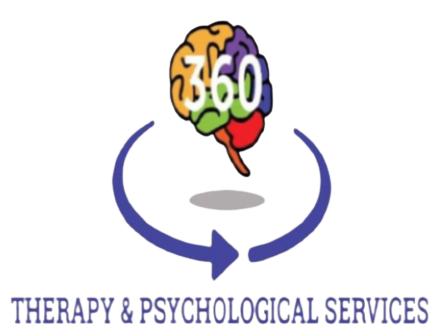How to Get Mental Health Help and Where to Go: A Complete Guide

Mental health is an essential part of overall well-being. Whether you’re experiencing anxiety, depression, stress, or any other mental health issue, seeking help is the first step toward healing. This guide will walk you through how to get mental health help, the mental health consultation services available, and where to find urgent care support for immediate assistance.
1. Acknowledge the Need for Help
The first step in getting mental health help is recognizing that you need it. Whether you’re feeling overwhelmed by life’s challenges or dealing with chronic mental health conditions, acknowledging your feelings is crucial. Mental health concerns can affect anyone, and seeking help is a sign of strength, not weakness.
2. Identify the Type of Help You Need
Different mental health issues require different types of treatment. Consider whether you’re dealing with:
- Anxiety
- Depression
- Stress
- Trauma
- Relationship issues
- Substance abuse
- Eating disorders
Identifying the issue will help you find the right type of mental health support, whether it’s mental health consultation services, therapy, medication, or group support.
3. Types of Mental Health Professionals
Here’s a breakdown of mental health professionals you may encounter:
- Psychologists: Specialize in therapy and counseling.
- Psychiatrists: Medical doctors who can prescribe medication for mental health conditions.
- Licensed Counselors/Therapists: Offer talk therapy for various issues.
- Social Workers: Provide counseling and can help with social and environmental factors impacting mental health.
- Peer Support Specialists: Individuals who have lived experience with mental health issues and offer support and guidance.
4. Where to Seek Mental Health Help
There are multiple avenues to explore for mental health help, depending on your needs:
A. Primary Care Doctor
Your primary care doctor can be a great first point of contact. They can assess your mental health, prescribe medication if needed, and refer you to a specialist, such as a psychologist or psychiatrist.
B. Mental Health Urgent Care Clinic
In cases where you need immediate help, a mental health urgent care clinic is an excellent resource. These clinics are designed to provide urgent care for mental health crises, offering walk-in consultations and quick access to mental health professionals. If you’re in a mental health crisis and need prompt assistance, visiting one of these clinics can help stabilize your situation quickly.
C. Mental Health Consultation Services
For more routine and ongoing care, mental health consultation services can provide individualized treatment plans. These services typically involve a detailed evaluation of your mental health needs, offering personalized counseling and therapy options. Whether you’re seeking support for chronic issues or guidance on mental health management, these services are tailored to provide the specific help you need.
5. Know What to Expect in a Therapy Session
If you’re new to therapy, knowing what to expect can ease anxiety. In the first session, the therapist will typically:
- Ask about your mental health history.
- Discuss your goals for therapy.
- Provide an overview of what therapy might look like for you.
- Offer initial coping strategies.
6. Insurance and Financial Assistance for Mental Health Care
Mental health services can be expensive, but many options can make it affordable:
- Insurance: Check with your insurance provider to see what mental health services are covered.
- Sliding Scale Therapists: Some therapists adjust their fees based on your income.
- Community Health Centers: These centers often offer free or low-cost mental health services.
7. How to Choose the Right Mental Health Professional
Choosing the right therapist or psychiatrist is essential for a successful outcome. Here are some tips:
- Check Credentials: Ensure the therapist is licensed and has experience with your issue.
- Consider Their Approach: Therapists may use cognitive behavioral therapy (CBT), psychodynamic therapy, or other methods. Find one that resonates with you.
- Schedule a Consultation: Many therapists offer free consultations. Use this time to see if their style fits your needs.
- Trust Your Gut: It’s essential to feel comfortable and understood by your therapist.
8. How to Access Support in Specific Situations
Sometimes mental health help is needed in particular circumstances. Here are a few examples:
- Students: Most universities offer free or low-cost mental health counseling services for students.
- Workplaces: Many employers offer Employee Assistance Programs (EAPs) that provide free counseling sessions.
- Veterans: The Veterans Health Administration offers mental health services specifically for veterans.
- LGBTQ+ Individuals: Many organizations and therapists specialize in LGBTQ+ mental health issues.
9. Stay Committed to the Process
Getting mental health help is a process that requires commitment and patience. Therapy and counseling often take time to show results, so it’s essential to stay engaged and attend sessions regularly. If you’re prescribed medication, follow your doctor’s guidance closely.
10. Support Systems Matter
In addition to professional help, lean on your support system—family, friends, or support groups can provide invaluable emotional support during your mental health journey.
FAQs
How do I know if I need mental health help?
- If you’re experiencing ongoing feelings of sadness, anxiety, or stress that interfere with daily life, it’s a good idea to seek professional help.
What is a mental health urgent care clinic?
- A mental health urgent care clinic provides immediate assistance for people experiencing mental health crises. These clinics offer walk-in services to address urgent mental health concerns.
What if I can’t afford mental health care?
- Many mental health consultation services and community-based clinics offer sliding scale fees based on income, and some organizations provide free care.
Conclusion
Getting mental health help is crucial for your overall well-being. Whether through a mental health urgent care clinic, mental health consultation services, or an online platform, there are numerous resources available to guide you through the process. By understanding your options and taking the first step, you can start your journey toward better mental health.
recent post

Best Tips for Choosing the Right Family Doctor for Your Health Care

What to Expect from Psychodiagnostics Assessment – A Complete Guide


How to Find the Right Therapist for Your Mental Health Matters


